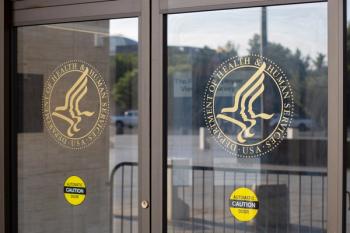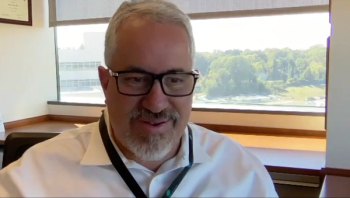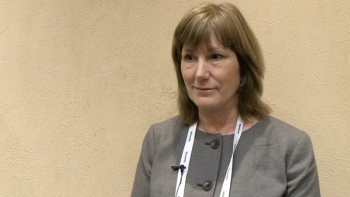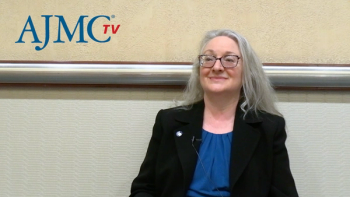
November is Diabetic Eye Disease Awareness Month. Diabetes is the leading cause of preventable blindness in the US. Here is a look at recent research related to diabetic eye diseases.

Laura Joszt, MA, is the vice president of content for the managed care and pharmacy brands at MJH Life Sciences®, which includes The American Journal of Managed Care®, Managed Healthcare Executive®, Pharmacy Times®, and Drug Topics®. She has been with MJH Life Sciences since 2011.
Laura has an MA in business and economic reporting from New York University. You can connect with Laura on LinkedIn or Twitter.

November is Diabetic Eye Disease Awareness Month. Diabetes is the leading cause of preventable blindness in the US. Here is a look at recent research related to diabetic eye diseases.

Palliative care is quality care, and providers and health systems need to do a better job at ensuring there is equity in palliative care, said Nadine J. Barrett, PhD, MA, MS, FACCC, of Wake Forest University and the Association of Cancer Care Centers.

Tyler Sandahl, PharmD, of Mayo Clinic, and Michael Byrne, DO, of Tennessee Oncology, discuss practical advice for bringing bispecifics to the community.

Patients with locally advanced hepatocellular carcinoma (HCC) who achieve a complete response after locoregional therapy and immunotherapy may be able to follow a watch-and-wait protocol.

Patients experienced similar safety and efficacy if they received first-line or later-line treatment for unresectable hepatocellular carcinoma (u-HCC).

Lindsay Bealor Greenleaf, JD, MBA, discusses how the appointment of Robert F. Kennedy Jr as HHS secretary could affect health care services in the future.

In the hours after President-elect Donald J. Trump tapped Robert F. Kennedy Jr to lead HHS, reactions came swiftly to the controversial pick who would have a large influence to shake up public health.

A new risk score model for hepatocellular carcinoma using standard clinical data can better identify individuals at risk better than the current standard risk models.

Over time, biosimilars are gaining traction in the US and becoming preferred products, explained James D. Chambers, PhD, of Tufts Medical Center.

The chimeric antigen receptor T-cell therapy obecabtagene autoleucel received approval to treat patients with relapsed or refractory (R/R) B-cell acute lymphoblastic leukemia.

The US could start catching up to Europe on biosimilars if the FDA removed the need for switching studies to be granted interchangeability.

Symptomatic improvement on therapy for myeloproliferative neoplasms (MPNs) is very much based on the individual. Data does show momelotinib not only improved spleen size and anemia but also improved symptomatic burden.

New legislation would clarify rules around value-based contracts in Medicaid, and a new model is expanding access to gene therapies, explained Adam Colborn, JD, of AMCP.

CMS is creating infrastructure to improve coverage of prescription digital therapeutics (PDTs), and new legislation would also drive uptake of PDTs.

Therapy selection for younger patients with myeloproliferative neoplasms (MPNs) may be different based on the desire for fertility preservation, but they are also at greater risk of their disease progressing, explained Ruben Mesa, MD, FACP, of Atrium Health.

There are a few unmet needs in schizophrenia that can make a big difference in the prognosis and quality of life of patients.

Stuart Staggs, vice president of transformation and shared services at McKesson, explained that oncology practices in the Enhancing Oncology Model (EOM) have a tough job driving down costs when drug costs make up a larger portion of the total cost of care.

There can be a delay in diagnosis of myeloproliferative neoplasms as the symptoms of the diseases can be variable and common, such as fatigue, migraines, and difficulty concentrating, explained Ruben Mesa, MD, of Atrium Health.

Kimberly Westrich, MA, of National Pharmaceutical Council, and Adam Colborn, JD, of AMCP, run through the current status of lawsuits and lawmaking at the federal and state levels related to pharmacy benefit managers and cost-shifting programs.

In addition to Cobenfy being approved for schizophrenia, there are other drugs with novel mechanisms being studied that may mean combination therapies or, at least, more options for patients in the future.

While treatment options are evolving cancer care and extending lifespans, there is still a lack of biomarkers in certain cancers that can help direct treatment or provide early detection.

CMS made improvements for the Enhancing Oncology Model (EOM) over the Oncology Care Model (OCM), but there remains a delay in data and the challenge of high-cost, novel therapies, explained Stuart Staggs, vice president, Transformation and Shared Services, McKesson.

The latest therapy approved to treat chronic graft-versus-host disease (GVHD) has a new target different than the other approved therapies. Daniel Wolff, MD, also discusses future research on axatilimab to treat chronic GVHD earlier.

Posters at AMCP Nexus analyzed the burden of flares on patients with atopic dermatitis (AD) and the impact initiating ruxolitinib cream had on use of other therapies.

There is a role for both payers and providers to make small changes that would increase the use of biomarker testing to ensure patients are receiving the appropriate treatment, said Susan Wescott, RPh, MBA, senior director of managed care pharmacy, Mayo Clinic.

Co-pay accumulators and maximizers are 2 programs that insurers have started implementing to help them redirect financial assistance from the patient, said Kimberly Westrich, MA, chief strategy officer, National Pharmaceutical Council.

A new letter signed by more than 230 members of the House urges Congress to not only block the scheduled 2.8% reimbursement cut, but also reform the Medicare Physician Fee Schedule.

A lot of attention has been on the drug price negotiation aspects of the Inflation Reduction Act (IRA), but the implementation of out-of-pocket smoothing is something to keep an eye on, said Adam Colborn, JD, of AMCP.

The prevalence rates of metabolic dysfunction–associated steatohepatitis (MASH) and metabolic dysfunction–associated steatotic liver disease (MASLD) are likely underestimated using claims data alone.

Bipolar disorder is commonly misdiagnosed depending on the features that present, explained Stephanie Hsia, PharmD, MAEd, BCPP, of University of California, San Francisco.

259 Prospect Plains Rd, Bldg H
Cranbury, NJ 08512
© 2025 MJH Life Sciences®
All rights reserved.
